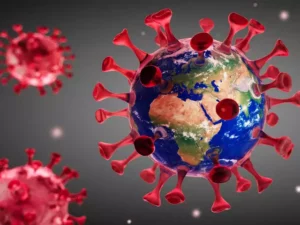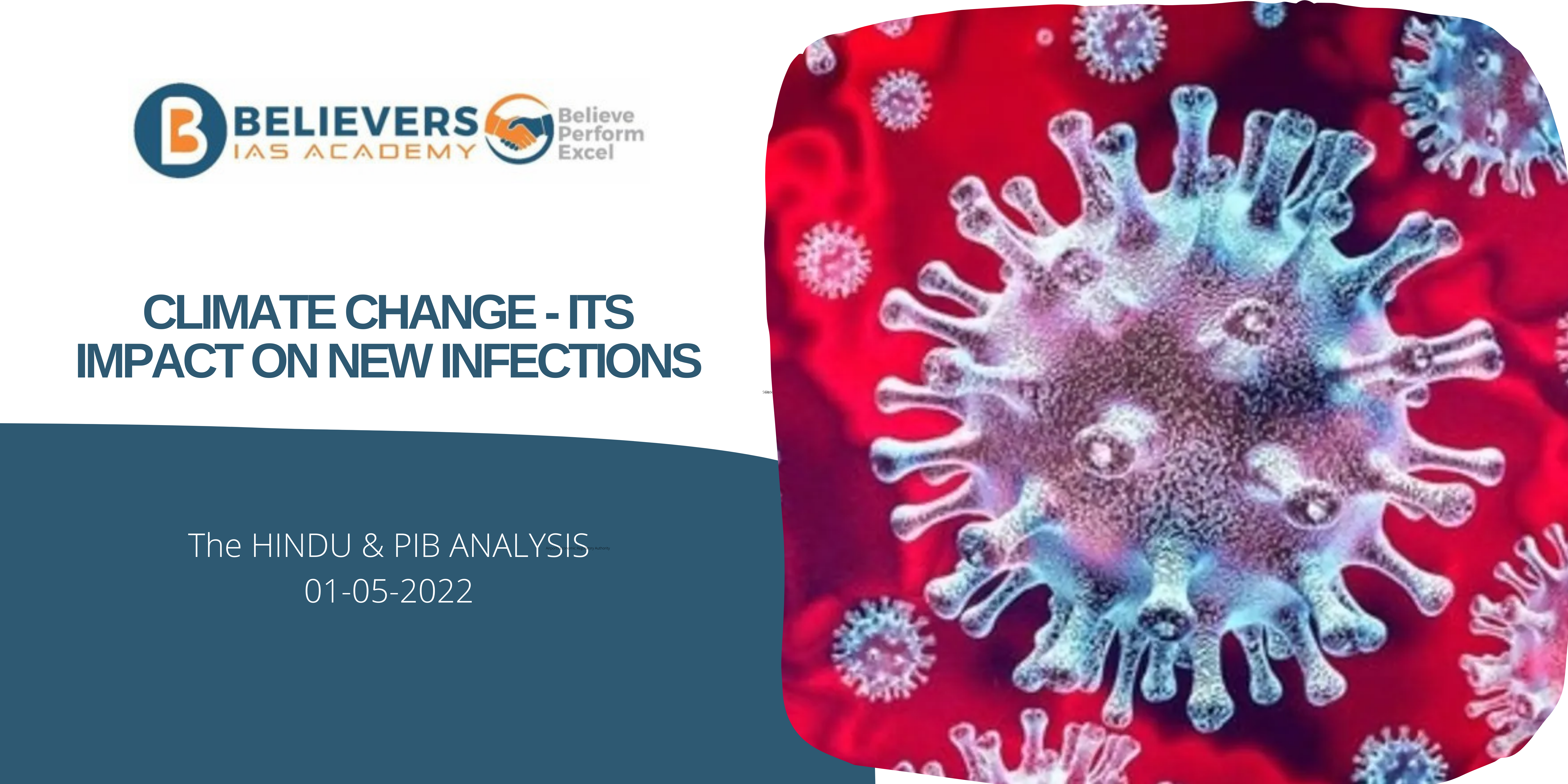Climate Change – Its Impact on New Infections
Context:
- According to a new study, Climate change will result in thousands of new viruses spread among animal species by 2070 and that is likely to increase the risk of emerging infectious diseases jumping from animals to humans.

About:
- This is especially true for Africa and Asia, areas where fatal diseases such as the flu, HIV, ebola, and COVID-19 have transmitted from humans to animals or vice versa in recent decades.
- If the world warms by 2°C, which new research suggests is possible, over 3,000 animal species might travel and spread viruses during the next 50 years.
- The researchers have discovered that cross-species viral transmission occurs over 4,000 times in mammals alone.
- This study did not include birds or marine animals. According to the researchers, while not all viruses will transmit to people or become pandemic on the magnitude of the coronavirus, the number of cross-species viruses raises the likelihood of human infection.
The One Health Approach:
One Health is an approach that recognizes that the health of people is closely connected to the health of animals and our shared environment.
Examples of zoonotic diseases:
- Rabies
- Anthrax
- Brucellosis
- Lyme disease
- Ringworm
- Ebola
- One zoonotic diseases, antibiotic resistance, food safety and security, vector-borne diseases, environmental contamination, and other health hazards that affect people, animals, and the environment are just a few of the difficulties that people, animals, and the environment face.
Source: THE HINDU.
For more update, click here to join our telegram channel




